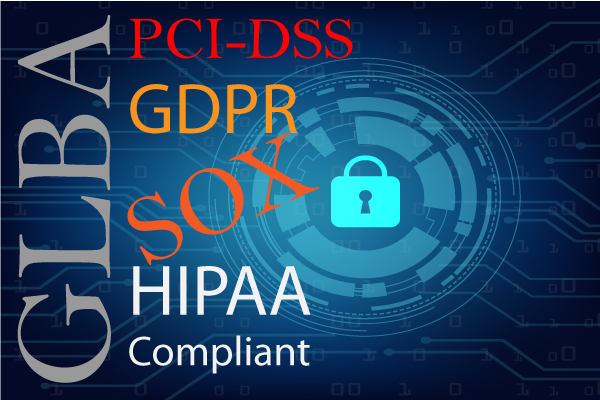The importance of regulations

Benefits of compliance
Avoiding penalties: The biggest one that might come to mind with any business owner is the penalties of non-compliance.
Reduced risks: Regulations recommend best practices for reducing cyber risks. This helps keep your business identity from gaining a bad reputation.
Cyber security and compliance regulations
Compliance with regulations is crucial in maintaining working cyber security policies. However, organizations tend to focus more on the regulations in terms of time and resources at the expense of developing effective cyber security procedures. As such, they might be more exposed to cyber threats. Besides, criminals have access to the regulations, and they can innovate means of compromising the standards. To counter this, businesses should combine security tools and processes with existing regulations. For instance, artificial intelligence can effectively detect and respond to threats, and at the same time, keep tabs on current and emerging compliances. This can play a large role when selecting certain security software, like an anti-virus. An active Endpoint detection and response (EDR) solution will go much further than a traditional anti-virus that’s based on a database of known threats.
The future of cyber security
New technologies will redefine the cyber security landscape. To mention just a few, 5G networks will lead to faster speeds used to interconnect smart cities, critical infrastructures, and billions of IoT devices. Cyber-attacks will focus on disrupting or taking control of critical systems. And, improperly configured IoT devices pose a large risk factor to any network.
Also, artificial intelligence will lead to smarter and more sophisticated attacks. Hackers will develop intelligent malware capable of executing where there will be the most severe damage. On the other hand, security experts will include artificial intelligence in security products that can detect attempted intrusions and deploy appropriate responses with minimal human intervention.
Biometric security, such as fingerprints and iris scanning is currently used to authenticate users before allowing them to access items such as smartphones, computers, and buildings. Due to the need for enhanced security, future biometrics will include details like walking styles and body movements.
Current compliance laws
The following is a short list of some of the compliance laws, though not all are listed here. When studying these and other regulatory laws, you’ll find that they all have different requirements, however, they all revolve around 3 things when it comes to data security.
- Confidentiality – Ensuring the information is not disclosed to unauthorized sources.
- Integrity – This ensures the protection of the information from being modified by unauthorized persons or the destruction of said data.
- Availability – This last one ensures reliable access to data and services for authorized users in a timely fashion.
HIPAA
HIPAA (Health Insurance Portability and Accountability Act) contains requirements which organizations use to secure health data belonging to employees or patients. The requirements enable an institution to adopt the best data protection practices.
GLBA
Gramm-Leach-Bliley Act (GLBA) is intended for the financial sector, this regulatory law, among other things, is set to protect financial information. This protection is on behalf of the consumers and applies to organizations engaged in financial activities. This includes, but is not limited to, banks, and companies dealing with mortgages, insurance, tax preparation, debt collection and more.
FISMA
The primary purpose of FISMA (Federal Information Systems Management Act) is to set security standards which federal agencies should follow when developing cyber security programs. The standards can assist private entities in bolstering their cyber defense efforts.
SOX
Sarbanes-Oxley Act (SOX) dramatically changed how public companies do business. It was established to restore public confidence in the financial reporting of public companies. It requires independent auditing and enhanced financial disclosures among other things.
PCI-DSS
PCI-DSS (Payment Card Industry Data Security Standard) provides security standards for securing credit card data and points of sale within an organization. This is to prevent attacks aimed at compromising online transactions such as those done in eCommerce platforms.
GDPR
GDPR (General Data Protection Regulation) recommends guidelines for securing personally identifiable information belonging to European Union citizens. The guidelines include data encryption and requiring data owner consent before using it.
